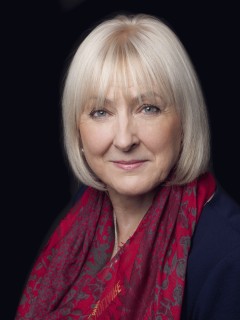Pause for a moment, before reading on, and ask yourself what is the best example you can think of where qual research contributed to the success of a brand. I will come back to this thought later…
On becoming Chair of the AQR I was asked to write about my opinion on the future of qual, and this made me reflect upon the changes I’ve seen over recent years. To broaden my personal perspective, I consulted members of the AQR board, as well as a few pivotal people who are leading some of our best agencies, and immersed myself in some key industry events and publications. It seems we face many different threats.
As part of the leadership team in Flamingo during its period ofglobal growth and development, I had a wonderful opportunity to work with prestigious clients on the development of their global strategies and communications, on some of the world’s most distinguished and successful brands.
A potent mix
My strong belief in the value of qualitative thinking to inform the development of brand strategy is based on this real experience of blending cultural, consumer and brand insight.
Over these years of rapid global growth, one of the key challenges the sector has faced has been the variable quality of work across the world. Eventually Unilever felt that a crisis point had been reached, and the company invested heavily in its own accreditation programme to ensure Gold Standard Qualitative Research around the world.
In appreciation of the need for high professional standards, I agreed to become an assessor on this programme in the UK, despite its lack of popularity in some quarters. To this day accreditation continues to be a topic of discussion at many of the industry meetings I attend, in recognition of the reality that we must find a way to ensure high professional standards, or quite simply we are all doomed!
Qualitative has also faced a challenge from Behavioural Economics, and the feeling that System 1 thinking creates a need to radically change our approaches, most notably the use of standard focus groups to develop communications. At the same time the focus on observing and capturing behaviour on film has grown in popularity over the years, with the advent of technology that allows ethnographic video footage to be captured easily across the world, uploaded and edited rapidly into stimulating visual output. New suppliers have emerged who offer editing expertise, apparently reducing the need for researchers.
This is not the only threat from technology. Online research has met a need for global reach and speed, if not always achieving the anticipated cost savings or strategic direction.
The constant pressure to find competitive advantage, and the appeal of the new, means that many marketers have been focused on finding ways to ensure the effective use of the vast amounts of data now available as a result of our online and social media behaviours. David Taylor conducted research with Marketing Directors for his latest Brandgym book, and reports that 62% are of the opinion that we have become too distracted with the hype and hysteria around digital and social media.
This digital disruption has even led one or two major clients to declare that traditional qualitative approaches are no longer necessary or relevant. As you might expect, I don’t believe this is true. I’m happy to report that, for once, it seems I am in good company, as Judie Lannon says in a recent interview in Market Leader “What Big Data can do better than anything else is analyse patterns of behaviour. But there’s a lack of insight into the motives and meanings.”
Increasing threat
At the recent ESOMAR Congress, Anneke Quinn-de Jong of Philips International, identified the increasing threat from DIY research conducted by all sorts of other companies who lack research knowledge and expertise. Her view is that traditional market research has an image problem, and that we must defend our expertise in a similar way that journalists have been required to defend theirs, before it is too late.
Time for reinvention
I took on the role of Chair at the AQR as I believe we need to look forward, to welcome digital disruption and embrace new behaviours. Perhaps it is time to reinvent qual by taking a fresh look at the core benefit we deliver to our clients, and pivot in a way that redefines our market in terms of ‘insight and strategy’ — innovating by combining the best of the traditional and the new as appropriate?
Finally, I believe that we need to speak up and defend the role of qualitative research in creating a solid foundation of insight. To that end I’d like to steal an idea from Google that I came across recently in Revolt: a movement owner's manual, by Alex Lewis and Bridget Angear. Google launched ‘Made with Code’ when they needed to attract more female employees.
I’d like to launch the AQR’s ‘MADE WITH QUAL’ to celebrate examples of all the different types of brand decisions made with the use of great qual. If every AQR member shares just one example each, we will be able to challenge our critics with hundreds of success stories! So please send your example to us…


